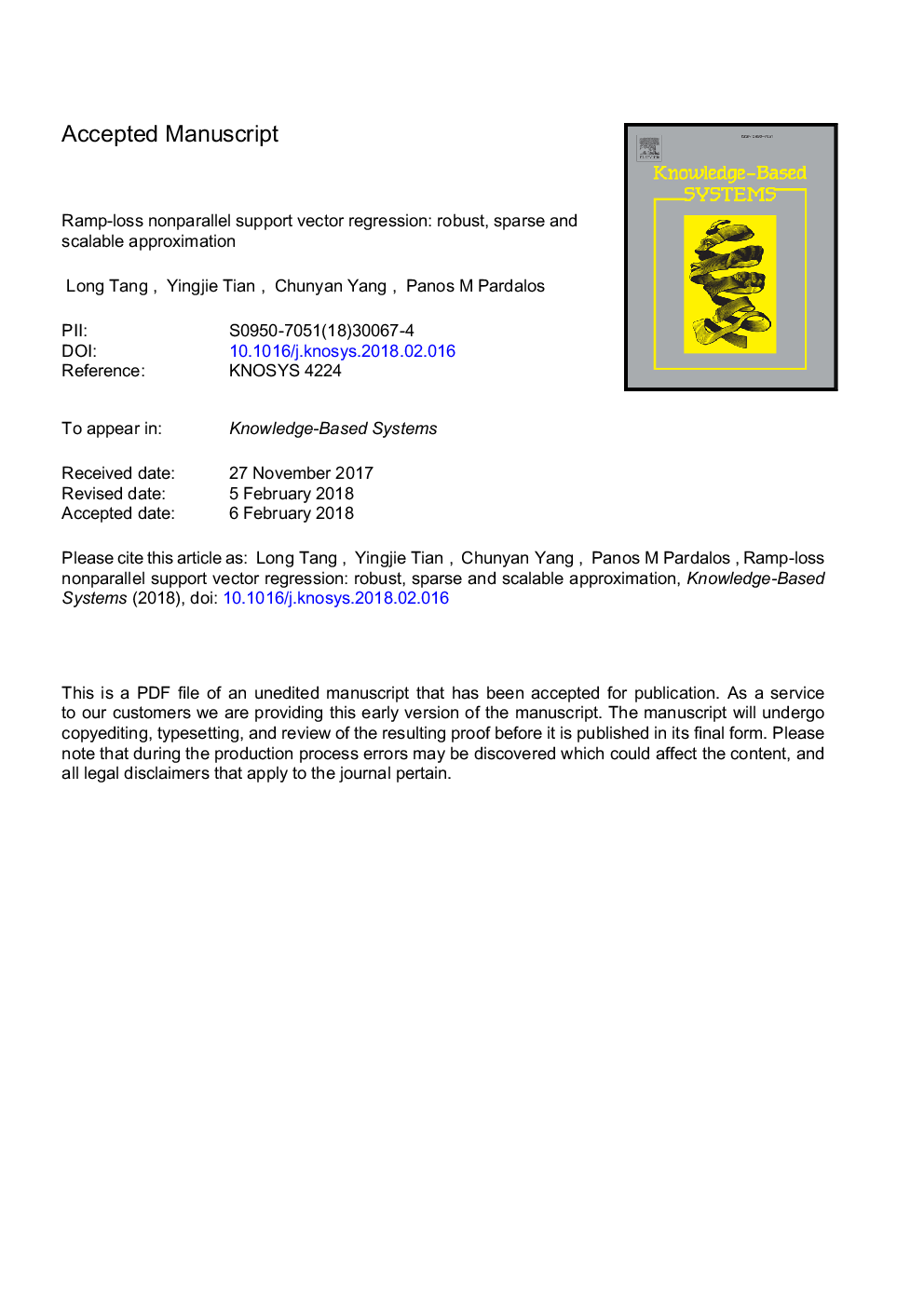| Article ID | Journal | Published Year | Pages | File Type |
|---|---|---|---|---|
| 6861567 | Knowledge-Based Systems | 2018 | 31 Pages |
Abstract
Although the twin support vector regression (TSVR) has been extensively studied and diverse variants are successfully developed, when it comes to outlier-involved training set, the regression model can be wrongly driven towards the outlier points, yielding extremely poor generalization performance. To overcome such shortcoming, a Ramp-loss nonparallel support vector regression (RL-NPSVR) is proposed in this work. By adopting Ramp ε-insensitive loss function and another Ramp-type linear loss function, RL-NPSVR can not only explicitly filter noise and outlier suppression but also have an excellent sparseness. The non- convexity of RL-NPSVR is solved by concave-convex programming (CCCP). Because a regularized term is added into each primal problem by rigidly following the structural risk minimization (SRM) principle, CCCP actually solves a series of reconstructed convex optimizations which have the same formulation of dual problem as the standard SVR, so that computing inverse matrix is avoided and SMO-type fast algorithm can be used to accelerate the training process. Numerical experiments on various datasets have verified the effectiveness of our proposed RL-NPSVR in terms of outlier sensitivity, generalization ability, sparseness and scalability.
Related Topics
Physical Sciences and Engineering
Computer Science
Artificial Intelligence
Authors
Tang Long, Tian Yingjie, Yang Chunyan, Panos M. Pardalos,
